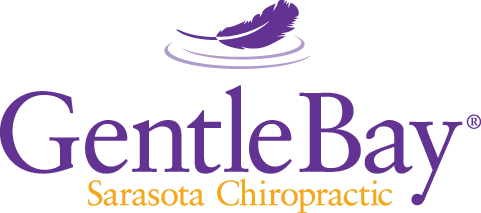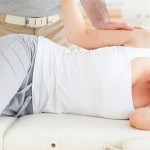Dr. Eric Winder will present an evening program on Wednesday, October 24, where you can learn in-depth about fascia. Find out why it is vitally important, how fascia causes pain, and how to solve the problems created by this important connective tissue. The feedback we’ve had on past presentations is consistently that this information makes… Read more »
Posts By: Dr. Eric Winder
Dr. Winder Interviewed on Art for Healing
Dr. Winder was interviewed by Catherine Thomas on her SNN program, Art for Healing, in the August 19 episode. He answered her questions about how he got into the healthcare field, why his practice focuses on soft tissue therapies, and what types of conditions he treats in his practice. For those interested in gentle, safe… Read more »
Why Posture Matters for Kids (and Adults)
by Dr. Eric Winder (as published in the July 2018 digital issue of Natural Awakenings, Sarasota/Manatee/Charlotte edition) Adults instinctively notice poor posture in children which is why “sit up straight!” can be such a common phrase for kids to hear. Parents understand what scientists have more recently discovered—poor posture can affect mood, health and confidence…. Read more »
Relief for Chronic Concussion Symptoms
by Dr. Eric Winder (as published in the May 2018 digital issue of Natural Awakenings, Sarasota/Manatee/Charlotte edition) Brain fog, dizziness, inability to concentrate, short-term memory loss, headaches, fatigue, irritability or shoulder tension—these are just some of the problems that can persist after a concussion, sometimes even for months or years after the injury. For many people, these symptoms… Read more »
Relieving Pelvic Pain
by Dr. Eric Winder (as published in the March 2018 issue of Natural Awakenings, Sarasota/Manatee/Charlotte edition) Pelvic pain can result from either weak or tightened pelvic floor muscles—or from a combination of both problems. This is called pelvic floor dysfunction (PFD). Affecting both women and men, PFD causes a range of symptoms that include bladder irritation, frequent or painful urination, pain in the pelvis, hips or low back, constipation or… Read more »
Brief Introduction to RST – April 4, 6:30-8:30pm
Grow Your Practice with RST Thinking about learning Residual Strain Therapy (RST)? This evening introduction to RST, presented by Dr. Eric Winder, is for any healthcare professional licensed to do manual therapy. The 2-hour program covers the underlying principles of the method, with demonstrations of assessment and treatment, as well as case example discussion. The… Read more »
Fascia and Coordination
by Dr. Eric Winder (as published in the August 2017 issue of Natural Awakenings, Sarasota/Manatee/Charlotte edition) Coordination is one of the key lynch-pins to good health and quality of life, although we rarely give much thought to it. Even if you are not a ballerina or a star athlete, you are still highly coordinated. Just the acts of getting… Read more »
Scar Tissue and Referred Pain
by Dr. Eric Winder (as published in the July 2017 issue of Natural Awakenings, Sarasota/Manatee/Charlotte edition) Scar tissue from surgeries and injuries can be a surprising source of pain. While some scars heal without issue, others develop restrictions that affect the connective tissue called fascia, resulting in pain nearby or referring pain to other parts of the body…. Read more »
Fascia & Posture
by Dr. Eric Winder (as published in the May 2017 issue of Natural Awakenings, Sarasota/Manatee/Charlotte edition) In previous articles, I have written about fascia as a sensory organ. Now we’ll take a look at how fascia makes posture possible. Without this sheet-like connective tissue that covers muscles, bones, organs and other tissues, standing upright and well-aligned… Read more »
Posture and Mood
Traditional wisdom says “keep your chin up” or “hold your head high” to improve confidence and mood. Recent research strengthens this advice, including a study in the March issue of Behavioral Therapy and Experimental Psychiatry. Study author Elizabeth Broadbent found that depressed people changing to a more upright posture had “more energy, a less negative mood, and… Read more »



